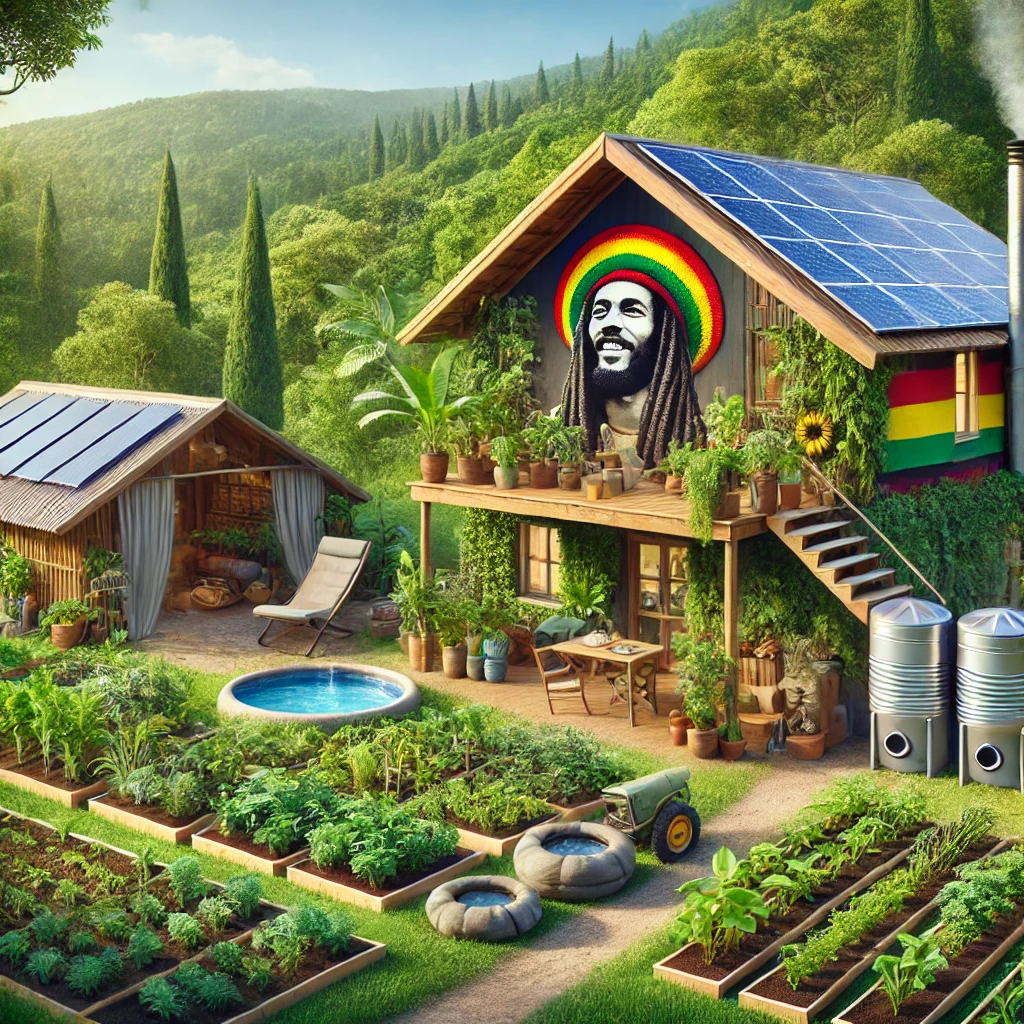Bless up, my brethren and sistren! Today, I want to share some valuable insights and practical tips on how to live sustainably off the grid, inspired by Rastafarian principles. Embracing a self-sufficient lifestyle not only aligns with nature but also promotes peace, health, and spiritual connection.
Choosing the Right Location
The first step in living off the grid is finding the right location. Look for land that provides natural resources such as fresh water, fertile soil, and ample sunlight. Consider factors like climate, accessibility, and local wildlife. A secluded spot near a forest or by a river can offer both beauty and practicality, providing resources and tranquility.
Renewable Energy Sources
Switching to renewable energy is crucial for off-grid living. Solar panels are a popular choice, as they harness the sun’s energy to power your home. Wind turbines and micro-hydro systems are also effective, depending on your location. Investing in a combination of these renewable sources ensures a steady and reliable supply of electricity.
Water Collection and Conservation
Access to clean water is essential. Rainwater harvesting systems can be set up to collect and store rainwater. Ensure you have filtration systems in place to make the water safe for drinking and cooking. Additionally, practice water conservation by using low-flow fixtures, reusing greywater for irrigation, and fixing leaks promptly.
Organic Farming and Permaculture
Growing your own food is a cornerstone of sustainable living. Embrace organic farming techniques to cultivate fruits, vegetables, and herbs. Implement permaculture principles, which focus on designing agricultural systems that mimic natural ecosystems. Companion planting, crop rotation, and composting are key practices that enrich the soil and increase crop yield.
Building Eco-Friendly Homes
Constructing an eco-friendly home involves using sustainable materials like bamboo, reclaimed wood, and natural stone. Consider building methods like earthbag construction or straw bale houses, which provide excellent insulation and are environmentally friendly. Design your home to maximize natural light and ventilation, reducing the need for artificial heating and cooling.
Waste Management
Effective waste management is vital for maintaining a clean and healthy living environment. Composting organic waste turns food scraps and garden clippings into nutrient-rich soil. For non-organic waste, practice recycling and upcycling to minimize landfill use. Create a composting toilet to manage human waste sustainably, turning it into safe compost for your garden.
Livestock and Animal Husbandry
Raising livestock can provide additional food sources like eggs, milk, and meat. Chickens, goats, and bees are excellent choices for a small homestead. Ensure your animals have adequate shelter, fresh water, and nutritious food. Incorporate rotational grazing to maintain healthy pastures and prevent overgrazing.
Natural Remedies and Herbal Medicine
Embrace the healing power of plants by growing your own medicinal herbs. Herbs like basil, mint, and turmeric can be used to treat common ailments naturally. Learn about the medicinal properties of local plants and how to prepare herbal remedies. This not only promotes health but also reduces dependence on pharmaceutical drugs.
Community and Bartering
Living off the grid doesn’t mean living in isolation. Build a network with like-minded individuals who share your values. Engage in bartering and trade to acquire goods and services you may not produce yourself. Sharing knowledge, skills, and resources strengthens community bonds and enhances self-sufficiency.
Mindful Living and Spiritual Practices
Lastly, incorporate mindfulness and spiritual practices into your daily routine. Start your day with meditation or prayer, connecting with Jah and expressing gratitude. Practice yoga or tai chi to maintain physical and mental well-being. Spend time in nature, observing and learning from its rhythms and cycles.

